Table of Contents
The feeling of chest pain or discomfort can be quite unsettling and often cause for concern. There are many different causes for chest pain ranging from mild conditions to serious health issues that require urgent medical attention. In this article, we'll explore the various possible causes of chest pain, symptoms to look out for, and the available treatments.
What actually is Chest Pain?
Chest pain is a natural symptom that can be caused by a wide range of factors. It is important to pay attention to chest pain, as it may be an indicator of a serious medical condition. Chest pain is often a sign of heart problems, but it can also be caused by lung or digestive issues.
Possible causes of chest pain
The causes of chest pain can vary greatly depending on the severity and location of the pain. Common causes include heartburn, anxiety, or muscle strains. Serious conditions that require medical attention can include heart attack, pulmonary embolism, or aortic dissection.
Chest pain and heart problems
Chest pain can be a warning sign of a heart problem. In particular, chest pain caused by angina can be a symptom of heart disease. Angina is characterized by a feeling of tightness, pressure, or squeezing in the chest that is often accompanied by shortness of breath, sweating, or dizziness.
Treatments for chest pain
The treatments for chest pain depend on the underlying cause of the pain. Mild cases can often be managed with lifestyle changes such as stress reduction, exercise, and healthy eating habits. In more severe cases, medical interventions such as medication or procedures may be required.
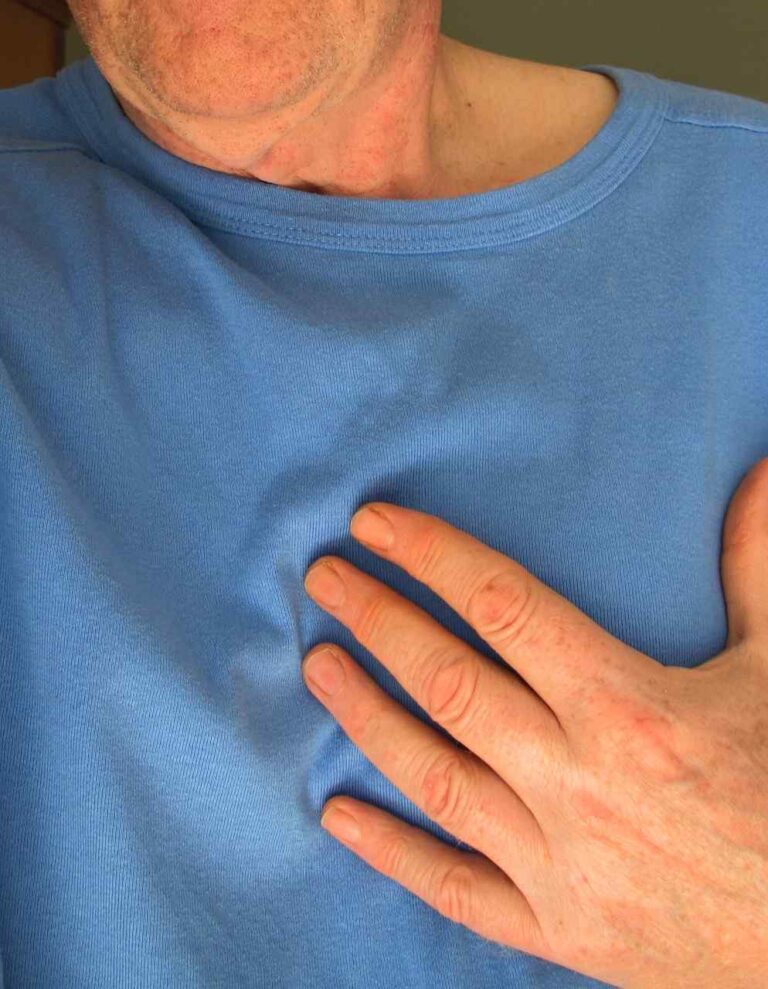
What are the Common Causes of Chest Pain?
Heart disease
One of the most common causes of chest pain is heart disease. Heart disease can cause chest pain or discomfort, and may also produce other symptoms such as shortness of breath, fatigue, and dizziness. It is important to seek medical attention if you are experiencing chest pain, as untreated heart disease can lead to serious complications.
Angina
Angina is a type of chest pain that occurs when there is not enough blood flowing to the heart. This can be caused by a blockage in the arteries that supply blood to the heart. Angina symptoms often include a feeling of pressure or tightness in the chest that may be accompanied by shortness of breath, sweating, or dizziness.
Shortness of breath
Shortness of breath is a common symptom that can be associated with chest pain. Shortness of breath can be caused by a variety of conditions, such as asthma, COPD, or pulmonary embolism. It is important to seek medical attention if you are experiencing chest pain and shortness of breath, as it may be an indicator of a serious medical condition.
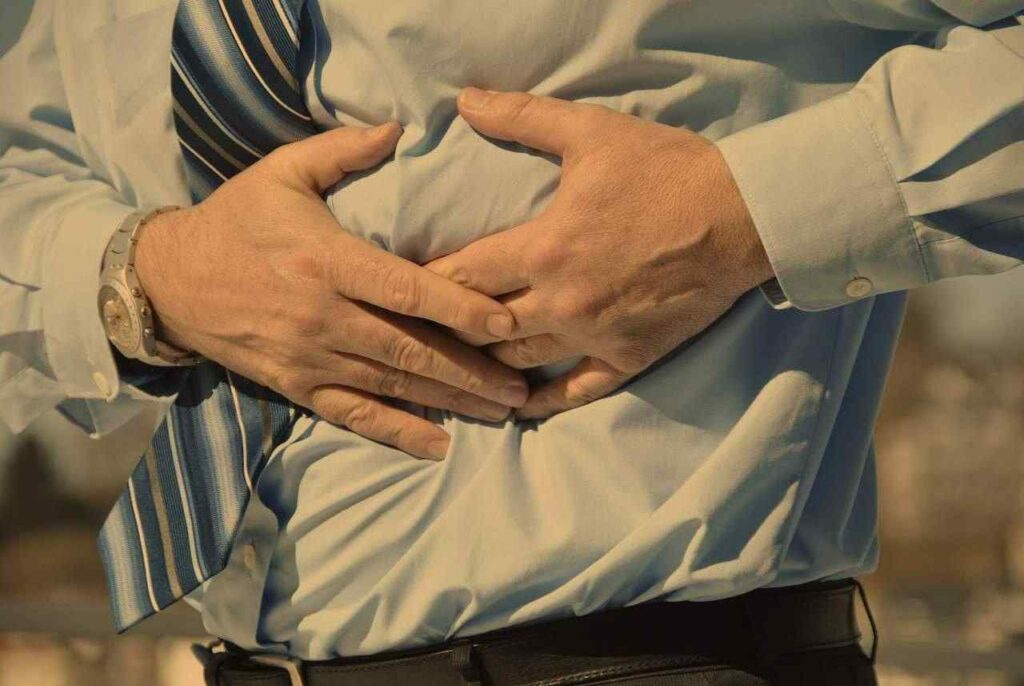
What are the Potential Causes of Chest Pain?
Pain that gets worse when you breathe
Chest pain that gets worse when you breathe can be caused by a variety of conditions such as pneumonia, pleurisy, or a blood clot in the lung. It is important to seek medical attention if you are experiencing sharp chest pain that is worsened by breathing.
Chest pain due to heart muscle problems
Chest pain that is caused by heart muscle problems can be a sign of various heart conditions, such as heart attack, myocarditis, or cardiomyopathy. These conditions require prompt medical attention.
Type of chest pain
There are many different types of chest pain, including dull, sharp, stabbing, or burning. The type of chest pain you are experiencing may help your doctor determine the underlying cause of your symptoms.
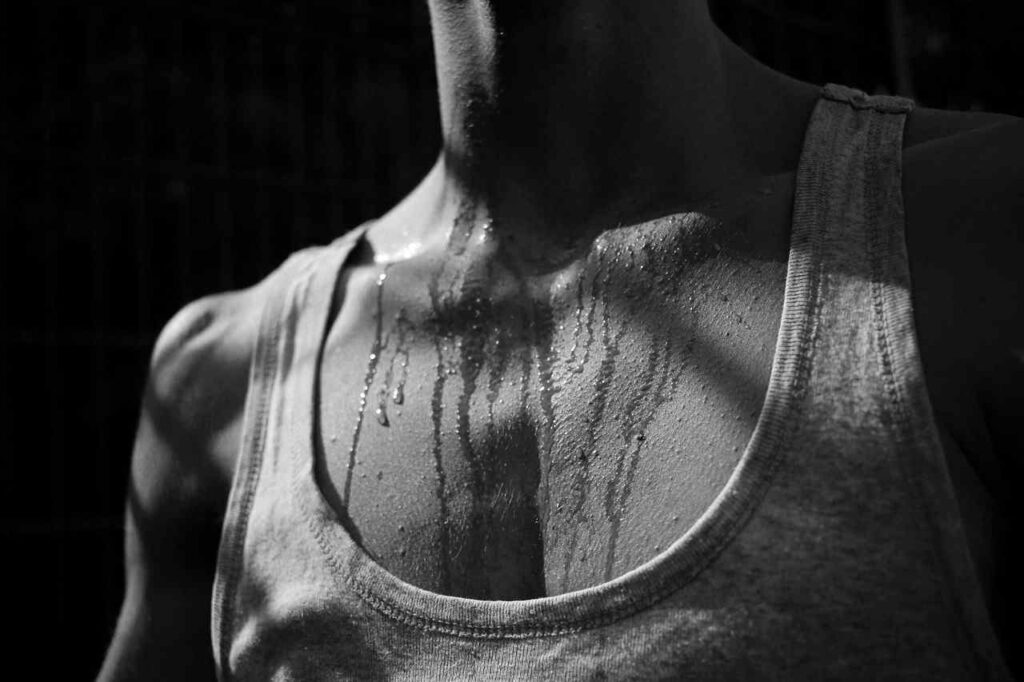
What are the Symptoms of Chest Pain?
Pain in the chest
The most common symptom associated with chest pain is pain or discomfort in the chest. Chest pain can be a feeling of pressure, tightness, or squeezing.
Pain may feel like sharp or stabbing
Sometimes chest pain may feel sharp or stabbing. This can be caused by a variety of conditions, including lung or digestive issues. It is important to seek medical attention if you are experiencing sharp chest pain, as it may be an indicator of a serious medical condition.
Pain that gets worse when you breathe
Chest pain that worsens when you breathe can indicate a variety of conditions, such as pleurisy or a blood clot in the lung. It is important to seek medical attention if you are experiencing sharp chest pain that is worsened by breathing.
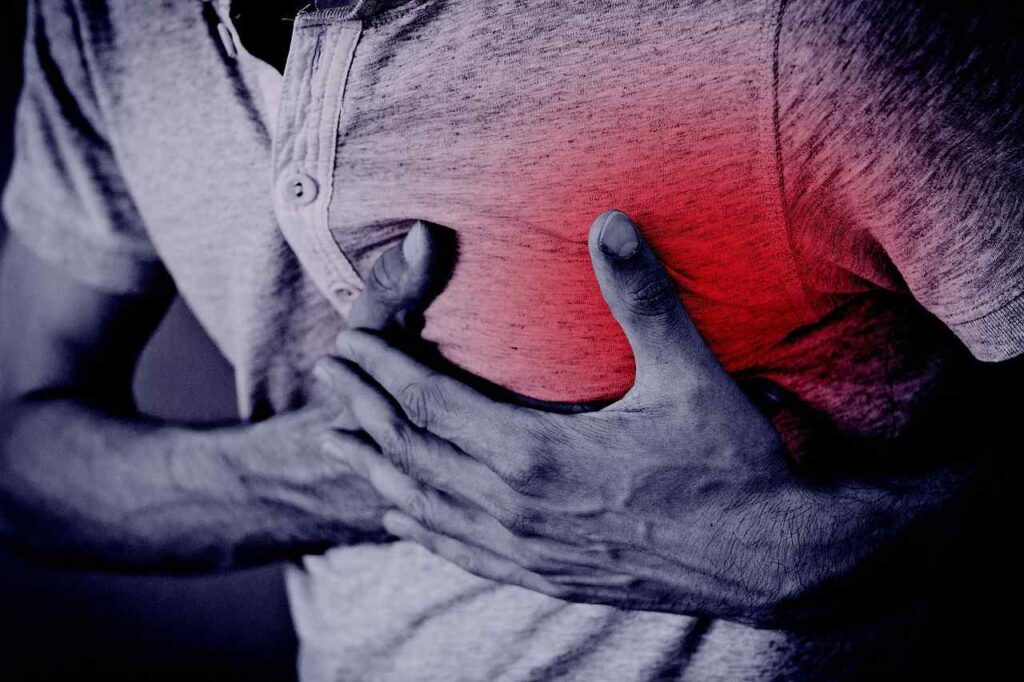
What is the Treatment for Chest Pain?
Diagnostics tests
Diagnostic tests such as ECG or angiography may be used to help diagnose the underlying cause of chest pain.
Medications or Procedures
Depending on the cause of the chest pain, medications or procedures such as surgery may be recommended.
Lifestyle changes
For milder cases of chest pain, lifestyle changes such as eating a balanced diet, quitting smoking, and regular exercise may be recommended.
In conclusion, chest pain can be caused by a variety of conditions ranging from mild to severe. If you are experiencing any chest pain, it is important to seek medical attention to determine the underlying cause of your symptoms and the appropriate treatment.
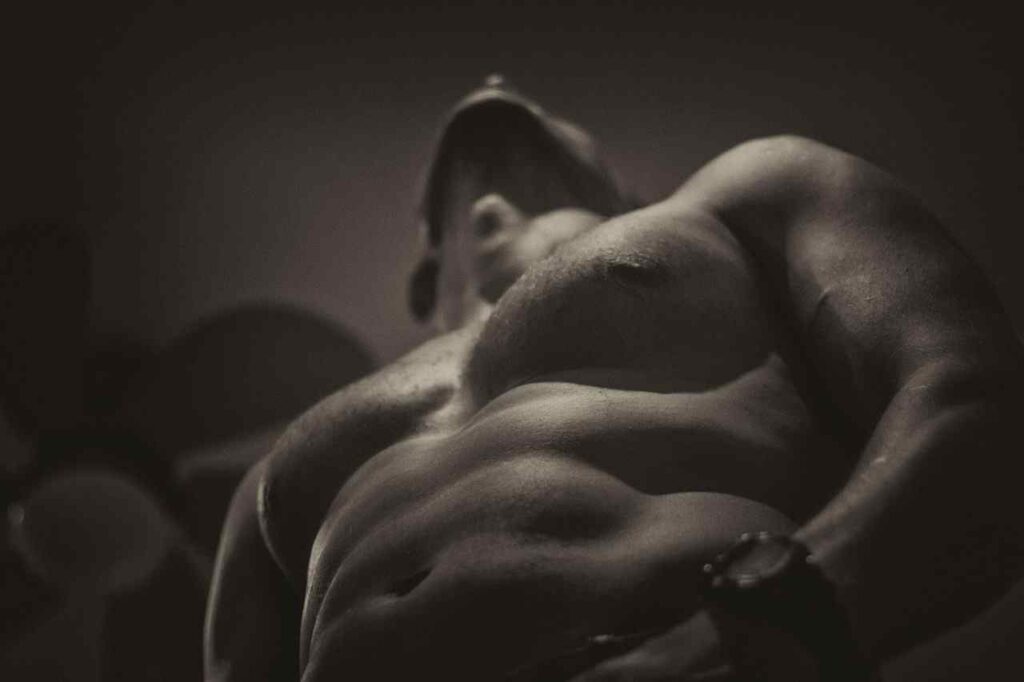
FAQ: Why Does My Chest Hurt?
Q: What are the possible causes of chest pain?
A: There are many possible causes of chest pain, including heart problems, inflammation of the gallbladder, and chest wall pain.
Q: Can chest pain be caused by a heart condition?
A: Yes, your chest pain can be a symptom of a heart condition. The pain may be described as a tightness or pressure in the chest and can also be accompanied by shortness of breath and dizziness.
Q: What does it feel like when you have chest pain?
A: Chest pain can present in different ways depending on the cause. It may feel like a sharp pain, a burning or aching sensation, or a pressure or tightness in the chest.
Q: What causes sharp pain in your chest?
A: Sharp pain in the chest can be caused by a variety of factors, including gas, muscle strain, and heart problems.
Q: Can pain in your chest be a sign of a heart attack?
A: Yes, sudden severe chest pain that lasts for more than a few minutes can be a sign of a heart attack. Other symptoms may include shortness of breath, pain or discomfort in the arms, back, neck, jaw, or stomach, and lightheadedness.
Q: What should I do if I think I'm having a heart attack?
A: If you think you're having a heart attack, call 911 immediately. Do not drive yourself to the hospital.
Q: What other conditions can cause pain that spreads to your chest?
A: Other conditions that can cause chest pain that may spread to the arms, neck, or back include acid reflux, anxiety, pneumonia, and a blood clot in the lungs.
Q: Can chest pain that comes on suddenly be a sign of heart failure?
A: Chest pain that comes on suddenly is not typically a sign of heart failure. However, heart failure can cause chest discomfort and other symptoms like shortness of breath, fatigue, and swelling in the legs and ankles.
Q: What are some possible treatments for chest pain?
A: The treatment for chest pain will depend on any underlying causes. For heart-related chest pain, treatments may include medications, lifestyle changes, or surgery. For other causes of chest pain like muscle strain or acid reflux, over-the-counter pain relievers or antacids may provide relief.
Q: What can I do to prevent chest pain?
A: To prevent chest pain, it's important to maintain a healthy lifestyle by eating a balanced diet, exercising regularly, getting enough sleep, and managing stress. If you have a history of heart problems or other health conditions, it's important to follow your doctor's recommendations for prevention and treatment.
Q: What are the common reasons for chest pain and heart problems?
A: Chest pain and heart problems can be caused by different factors, including damage to the heart, blood from the heart, or surrounding muscles. The damage can be permanent and even lead to a heart attack.
Q: How do I know that my chest pain is related to the heart?
A: Chest pain related to the heart is often described as a crushing pain in the chest area that may spread from your upper body, causing shortness of breath, sweating, and discomfort.
Q: Can chest pain ever be benign or non-life-threatening?
A: Yes, chest pain can also result from non-heart related causes like muscle pain. However, it’s difficult to distinguish between chest pain caused by a heart condition and pain caused by other factors, so it’s important to seek medical attention if you experience chest pain.
Q: What are some other symptoms that may tell me if my chest pain is related to the heart?
A: Aside from the pain, heart-related chest pain may also cause a sudden sharp pain in the upper right or left side of the chest. This pain may spread to other parts of the body, such as the arms, shoulders, and neck.
Q: Is all chest pain related to the heart?
A: No, chest pain could result from a variety of other causes beyond heart problems. However, it's important to get chest pain checked out by a medical professional to determine what is causing the pain and how it can be treated.
Q: Can anxiety cause chest pain?
A: Yes, anxiety and panic attacks can cause chest pain that usually feels like a stabbing pain in the chest area. However, it’s always vital to seek medical attention when experiencing chest pain to rule out any heart-related issues.
Q: How is chest pain diagnosed by a doctor?
A: Diagnosis of chest pain will depend on many factors such as the severity and duration of the pain. Generally, a doctor will perform an ECG, blood tests, or imaging tests such as X-ray or CT scan to identify what’s causing the pain.
Q: Can chest pain be a sign of a heart attack?
A: Yes, chest pain that comes with sweating, dizziness, and shortness of breath may be a sign of a heart attack. In such instances, seek urgent medical attention immediately.
Q: What kind of chest pain should I seek immediate medical attention for?
A: Chest pain that is sudden, sharp, and accompanied by shortness of breath, sweating, or dizziness warrants immediate medical attention as it could be a sign of a heart attack, pneumonia, or even a blood clot.
Q: How is chest pain treated?
A: Treatment of chest pain will depend on the underlying cause. If the chest pain is related to heart problems, medication, such as nitrates, aspirin, or statins may be prescribed. Similarly, other underlying conditions may be treated with medication, therapy, or lifestyle changes.
Related Articles
Prevention Why Does My Chest Hurt?
https://www.prevention.com/health/health-conditions/a35280081/why-does-my-chest-hurt/
Perks Optum Why Does My Chest Hurt?
https://perks.optum.com/blog/chest-pain-when-breathing
Live Strong Why Does My Chest Hurt After Cardio?
https://www.livestrong.com/article/438374-chest-hurts-after-cardio/
Runners Goal Why Does My Chest Hurt When I Run?
https://www.runnersgoal.com/why-does-my-chest-hurt-when-i-run/
Web MD Why Does My Chest Hurt? Whats Causing My Chest Pain?
https://www.webmd.com/pain-management/guide/whats-causing-my-chest-pain
NHS Inform Why Does My Chest Hurt?
https://www.nhsinform.scot/illnesses-and-conditions/heart-and-blood-vessels/conditions/chest-pain
Cleveland Clinic Why Does My Chest Hurt?
https://my.clevelandclinic.org/health/symptoms/21209-chest-pain
Mayo Clinic Why Does My Chest Hurt?
https://www.mayoclinic.org/diseases-conditions/chest-pain/symptoms-causes/syc-20370838
Medical News Today Why Does My Chest Hurt?
https://www.medicalnewstoday.com/articles/321650
NI Direct Why Does My Chest Hurt?
https://www.nidirect.gov.uk/conditions/chest-pain
Better Health Why Does My Chest Hurt?
https://www.betterhealth.vic.gov.au/health/conditionsandtreatments/chest-pain
BHF Why Does My Chest Hurt?
Nerd Momma Why Does My Lower Back Hurt?
https://nerdmomma.com/why-does-my-lower-back-hurt-18-big-lower-back-pain-faqs/#more-3454
Nerd Momma Why Are My Hands Always Cold?
https://nerdmomma.com/why-are-my-hands-always-cold-18-big-faqs/#more-3415
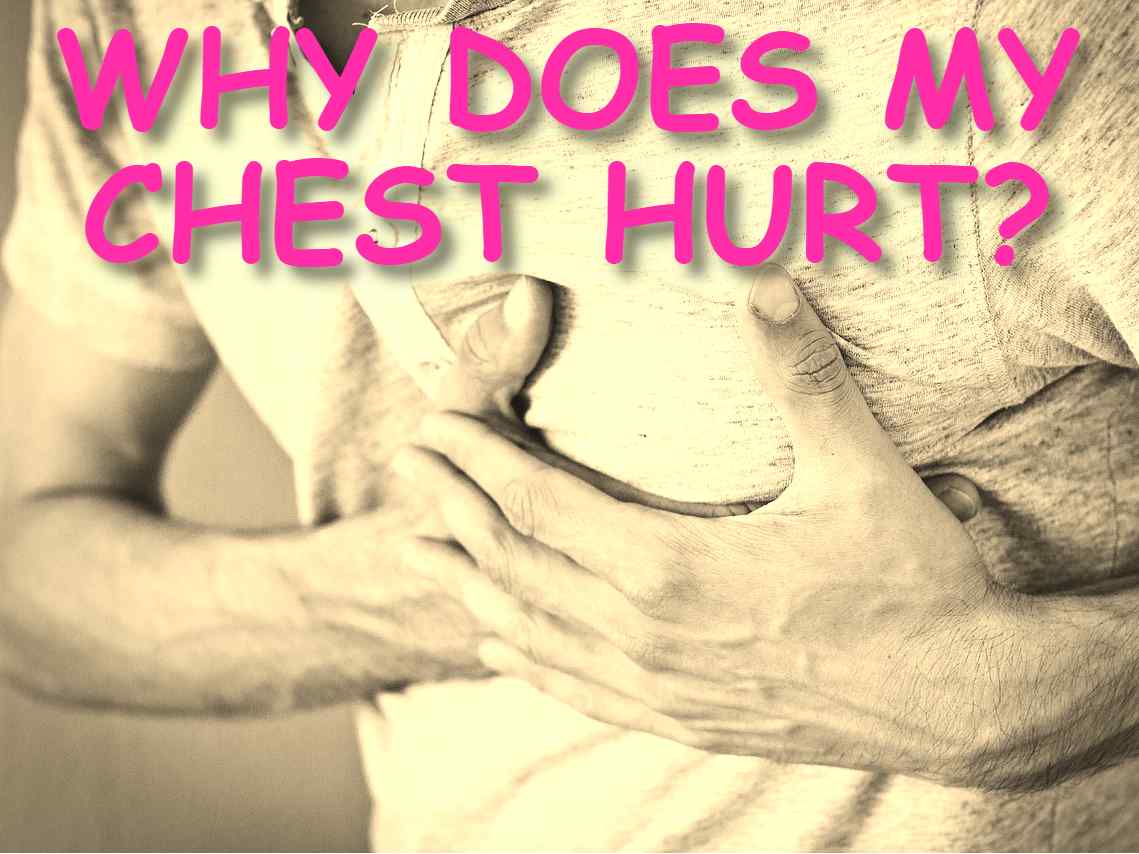
Normally I do not read article on blogs however I would like to say that this writeup very forced me to try and do so Your writing style has been amazed me Thanks quite great post